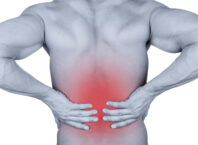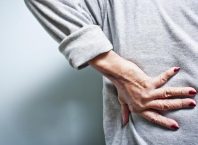Even there is no significant sign of a crash, delayed back pain after a car accident is something you should care about.
Delayed back pain after a car accident was a condition when there were no signs of illness felt right at the moment of the event.
Instead, the pain arises the day after the accident takes place, or even maybe weeks after.
What causing delayed back pain after a car accident?
Rear-ended car accident, for example, can make your head to move back and forth in a split second abruptly.
This sudden movement will make your neck along within the spine, experiencing an intense strain. The neck and back pain, however, often doesn’t feel right away after the event.
According to the Journal of Neurology published in Oxford University Press, there is a term called delayed onset pain.
In some cases, pain after trauma in a car accident develops only after an extended interval. For examples, delayed pains which first occur months or years after a disease such as strokes, spinal cord injury, and amputation.
Furthermore, delayed pain may develop gradually or suddenly. Also, it may be short term or long term pain.
Delayed pain which develops after a mild crash may be related to evolving sensory changes, which took slow progress over time.
Additionally, delayed back pain after a car accident which develops slowly after mild impact may be linked to a variety of slow anatomical, physiological and biochemical changes.
Affected areas related to back pain
First, the spine anatomically divided into three regions, which are:
- Cervical vertebrae (neck)
- Thoracic vertebrae (upper back)
- Lumbar vertebrae (lower back)
Each of these areas is constructed by vertebral discs, muscles, tendons, ligaments, and nerves.
If an injury happens in one or more of these issues, it can cause pain. Ranging from mild discomfort to unbearable, and from brief to long term.
Several injuries related to back pain after a car accident:
Whiplash
The most common occurrence related to back pain after a car accident is a whiplash. It is also known as neck strain.
Neck strain is usually associated with car accidents because impact or blow that causes your head to move back and forth in a sudden.
Moreover, the sudden force that you receive in a moment of the accident will stretch and damage the muscles and tendons in your neck.
Any significant damage in this area is primarily caused by massive car accidents such as high-speed rear-end accident. Unfortunately, it may result in permanent nerve damage.
Related:
Lumbar spinal cord injury
The lumbar spine, or commonly known as the low back, is located in the smallest main section of the spinal cord.
It consists of the five largest vertebrae and carries the most weight of any of the sections of the spine. Therefore features larger vertebrae than the upper back and neck sections of the spine.
A sprain or strain due to a car accident in the lumbar spine can be devastatingly painful.
Injuries to the spinal cord in the lower back commonly result in some loss of control in the hips and legs though it doesn’t affect the functionality of the upper body.
Herniated disks
Many class-action lawsuits asked by car accident victims are experiencing a herniated disc.
A herniated disk is a condition when one of the rubbery cushions or spinal disc between the individual bones break out and compress the spinal nerves. Spinal discs are the cushions that separate the vertebrae and protect the spine.
The symptoms may be perceived as pain in the arms and legs, numbness or tingling, and muscle weakness.
What to do to prevent delayed back pain after a car accident?
1. Seek a treatment
First, seek medical treatment right away after the incident. Although you do not feel pain at that moment following your car accident, a medical examination is the first thing to consider.
By doing medical treatment, your overall condition could be defined. And if there are any underlying damage due to the distress of the accident, the doctor will do the best.
Besides, take a note that even small rear-end accident can cause trauma on the specific parts of the body. Just because it was a minor bump doesn’t mean you won’t have any injury from the accident.
2. At home
Compress the pain using a hot or cold towel is one of the effective ways. You can apply 15 minutes of each either hot or cold compress in every few hours.
Over the counter medication such as; pain reliever and low doses, ibuprofen may also help to alleviate your pain. It can help to reduce swelling and inflammation in aching areas.
Additional things to consider
In the end, within the recovery process, you will be dealing with the insurance claim and paying for any costs related to your car accident.
Delayed back pain after a car accident is one of the reasons many people go through legal action to substitute their losses.
As a matter of fact, insurance will cover entire compensation for most car accidents. Also, finding the best car accident lawyer near you can help to handle any claims and compensation costs.
References:
- Oxford University Press: Delayed onset pain. https://academic.oup.com/brain/article/124/6/1067/377704#5511032
- Sheperd.org: Lumbar spinal cord injury. https://www.shepherd.org/patient-programs/spinal-cord-injury/Lumbar-Spinal-Cord-Injury
- Mayoclinic.org: Herniated disk. https://www.mayoclinic.org/diseases-conditions/herniated-disk/symptoms-causes/syc-20354095
















Is It Normal to Feel Pain Months After Hernia Surgery? Let’s...